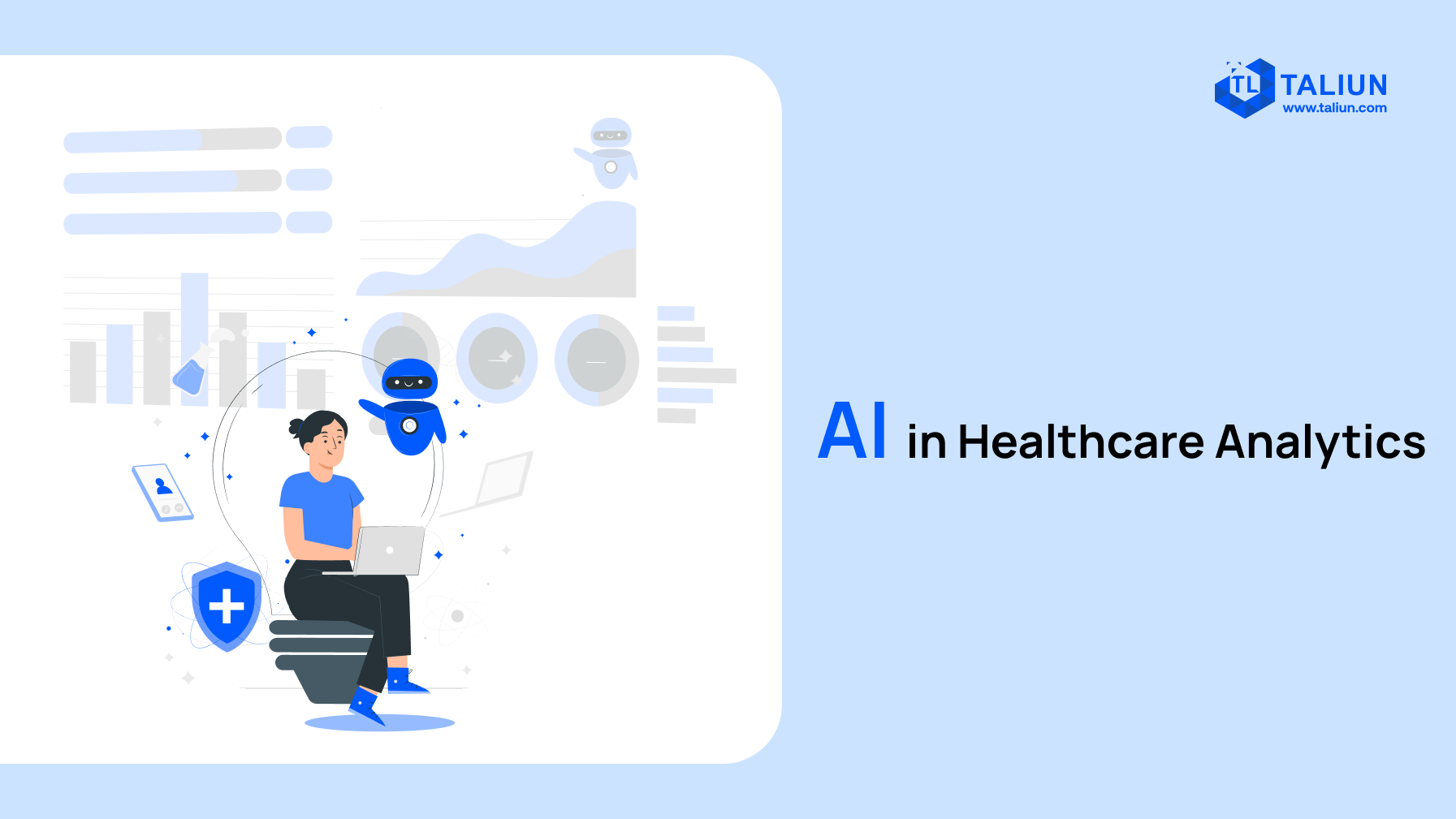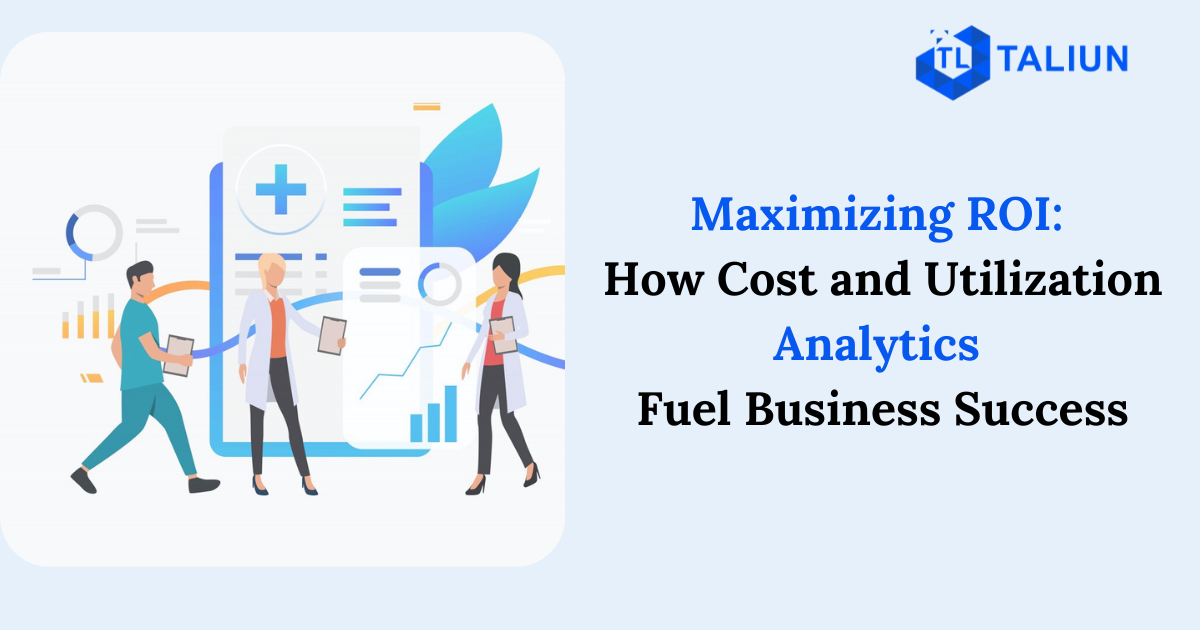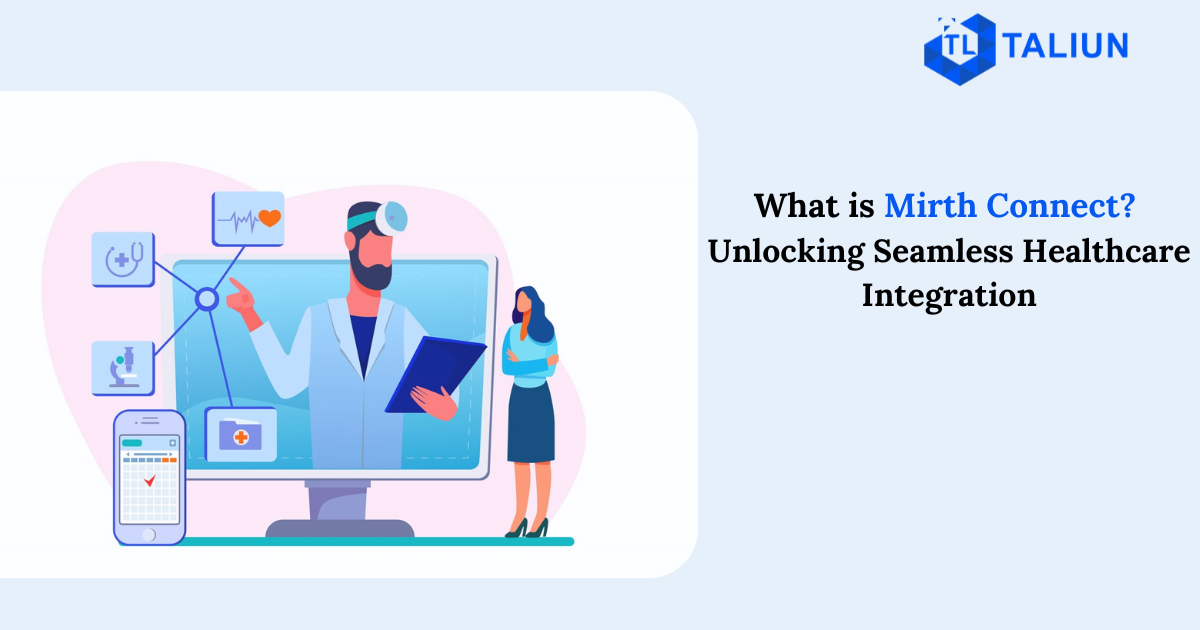AI in Healthcare Analytics

Artificial Intelligence (AI) is changing healthcare, particularly when it comes to using data to improve patient care. As hospitals and healthcare providers turn to data to make smarter decisions, AI-powered analytics is proving to be a game-changer. From improving patient outcomes to managing costs and boosting efficiency, AI is enhancing the way healthcare is delivered.
This blog will take you through how AI is reshaping healthcare analytics and what it means for hospital management.
How AI Works in Healthcare Analytics
AI in healthcare analytics involves using machine learning algorithms and data analysis techniques to make sense of large amounts of medical data. This could include data from electronic health records (EHRs), patient demographics, and imaging scans. By tapping into these insights, healthcare providers can make more informed clinical decisions and run their operations more efficiently.
Key Benefits of AI in Healthcare Analytics
More Accurate Diagnoses: AI can analyze complex data sets to spot patterns that might be missed by human eyes. For example, AI can help detect conditions like cancer or heart disease at earlier stages, which means treatments can start sooner and patients can have better outcomes.
Personalized Treatment Plans: Every patient is unique. AI helps create personalized treatment plans by looking at factors like genetics, environment, and lifestyle. This approach ensures that treatments are more effective and tailored to each person, while minimizing side effects.
Improved Operational Efficiency: AI can take care of time-consuming tasks like scheduling appointments and handling billing. This frees up healthcare staff to focus more on patient care, making the whole experience better for both patients and providers.
Predictive Analytics for Proactive Care: One of AI’s biggest advantages is its ability to predict patient outcomes based on past data. For instance, by identifying high-risk patients early, healthcare providers can intervene before complications arise, reducing hospital readmissions and costs.
Lower Costs: AI-driven analytics can significantly cut down operational costs for hospitals. By improving how resources are allocated and streamlining processes, hospitals can handle more patients without sacrificing quality of care.
Real-World Applications of AI in Healthcare Analytics
AI isn’t just a buzzword; it's already making a real impact in healthcare. Here are a few ways AI is being used:
Disease Diagnosis: AI is helping doctors analyze medical images and lab results faster and more accurately. For example, audiologists use AI tools to spot issues in X-rays or MRIs that might be missed during manual checks.
Drug Discovery: AI is speeding up drug development by analyzing biological data to predict how new drugs will react in the body. This shortens clinical trial timelines and cuts costs related to drug development.
Patient Monitoring: Wearable devices that use AI can track vital signs in real time and alert healthcare providers to potential health problems before they become serious. This is especially useful for managing chronic conditions and improving patient safety.
Resource Management: AI helps hospitals forecast patient volumes, so they can adjust staffing levels accordingly. This ensures hospitals are prepared for busy times without overstaffing during quieter periods.
Population Health Management: Healthcare organizations are using AI to analyze community health data. By spotting trends and identifying risk factors, they can create targeted health initiatives that address widespread health issues more effectively.
Challenges and Considerations
While AI in healthcare analytics brings a lot of benefits, there are still some hurdles to overcome:
Data Privacy:
Protecting patient data is crucial. Healthcare providers need to ensure they comply with regulations like HIPAA to keep sensitive information safe.
Data Quality:
The success of AI depends on the quality of the data it analyzes. Poor or incomplete data can lead to inaccurate predictions and faulty decisions.
Change Management: Switching to AI-driven analytics means healthcare staff may need training, and workflows may need to be adjusted. This can be met with resistance from those used to traditional methods.
Conclusion
AI in healthcare analytics is transforming how hospitals and healthcare providers operate. By improving diagnostic accuracy, personalizing treatment, enhancing operational efficiency, and enabling proactive care, AI is making healthcare smarter and more efficient.
As AI technology continues to advance, its role in healthcare will only grow. By embracing AI, healthcare providers can improve patient outcomes, streamline operations, and lower costs. This means better care for patients and a more sustainable system overall.
In summary,
AI-powered healthcare analytics holds potential for making healthcare smarter, more effective, and more responsive to the needs of modern medicine.
Subscribe to our Blogs
Contact Us
Thanks for subscribing! You'll now receive our latest blog posts straight to your inbox.
Please try again later.
Locations
US:
39899 Balentine Drive,Suite 200
Newark, CA 94560
Phone: +1-(408) 883 - 7902
India:
Ven Business Center I, First Floor, Baner - Pashan Link Rd, Pashan, Pune, Maharashtra 411021
Phone: +91 83293 46166
Copyright 2024 Taliun | Privacy Policy




